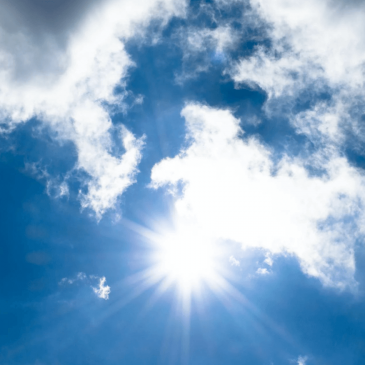Is Residential Solar Power Right for You? Get Help Deciding Now
Solar is not only the world’s strongest weapon against global warming, but it’s also one of the most effective ways to save money on the ever-rising cost of electricity. For many homeowners, making the change to a cleaner and more sustainable energy source is easy because of these two facts, but not everyone is so quick to get on board.
The truth is, not every home is in the best position to enjoy the many benefits offered by solar energy. If you are unsure if residential solar power is right for you, then this post will help you decide. Here are five things you will need to consider to get the most out of solar.
Local Climate
A common misconception is that to enjoy solar, you need to live in a warm, sunny climate. The truth is, while the amount of sunshine is important, solar panels actually work more efficiently in cooler temperatures because their efficiency starts to drop whenever temperatures climb above 87 degrees.
Even snow isn’t that big of a concern as long as you receive plenty of sunshine. The reason is because the angle of the panels combined with their dark color (which absorbs heat) means that snow will quickly melts and slide right off.
In fact, the only thing that will prevent you from being a good candidate for solar, at least in terms of your local climate, is if you live somewhere that is predominantly cold and cloudy.
Roof
If you are considering having solar panels installed on your roof, then your roof will be a primary consideration because its age, size, pitch, and direction are all essential details that need to be right to accommodate a roof installation.
Ideally, your roof should be south- or west-facing, although you can still enjoy solar energy’s benefits even with a west or east facing roof. The best roof is one that is pitched at 30 degrees and has no obstructions to block the sunshine. The roof also needs to be big enough to support the desired number of solar panels and in good enough shape to safely accommodate the installation.
Local Electricity Rates
Saving money is one of the primary benefits of going solar. But just how much you can save might be a consideration you will want to keep in mind. You want a solar system large enough to provide you with the type of savings you are expecting, and this all comes down to what your local utility rates are.
Local Regulations
If you live somewhere where you have to answer to a homeowner’s association (HOA), then you may have certain regulations you will need to follow regarding your solar installation. There will also be other local requirements you will have to deal with as well, like permits from the city or county building department. In most cases, your installer will help you navigate these regulations and make sure that your installation meets them.
Upfront Cost
Going solar does require an initial investment that for some households might be higher than they’re comfortable parting with. But there remain a variety of incentives and rebates provided by federal, state, and local entities that can help make their decision easier.
For instance, the federal solar tax credit gives homeowners a dollar-for-dollar reduction against their federal income tax equal to 26% of the final cost of their solar energy systems. This benefit is available through December 31, 2022. In 2023 the tax credit drops to 22% before being eliminated in 2024, that is unless Congress takes action to extend the credit.
If you think solar is right for you, then now is the best time to go solar because nobody knows if there will be another extension on the solar tax credit. And with climate change nearing the point where the damage will be no longer reversable, it’s never been more important to reduce our demand for fossil fuels and take the necessary steps toward a future powered by this cleaner and more sustainable form of energy.

